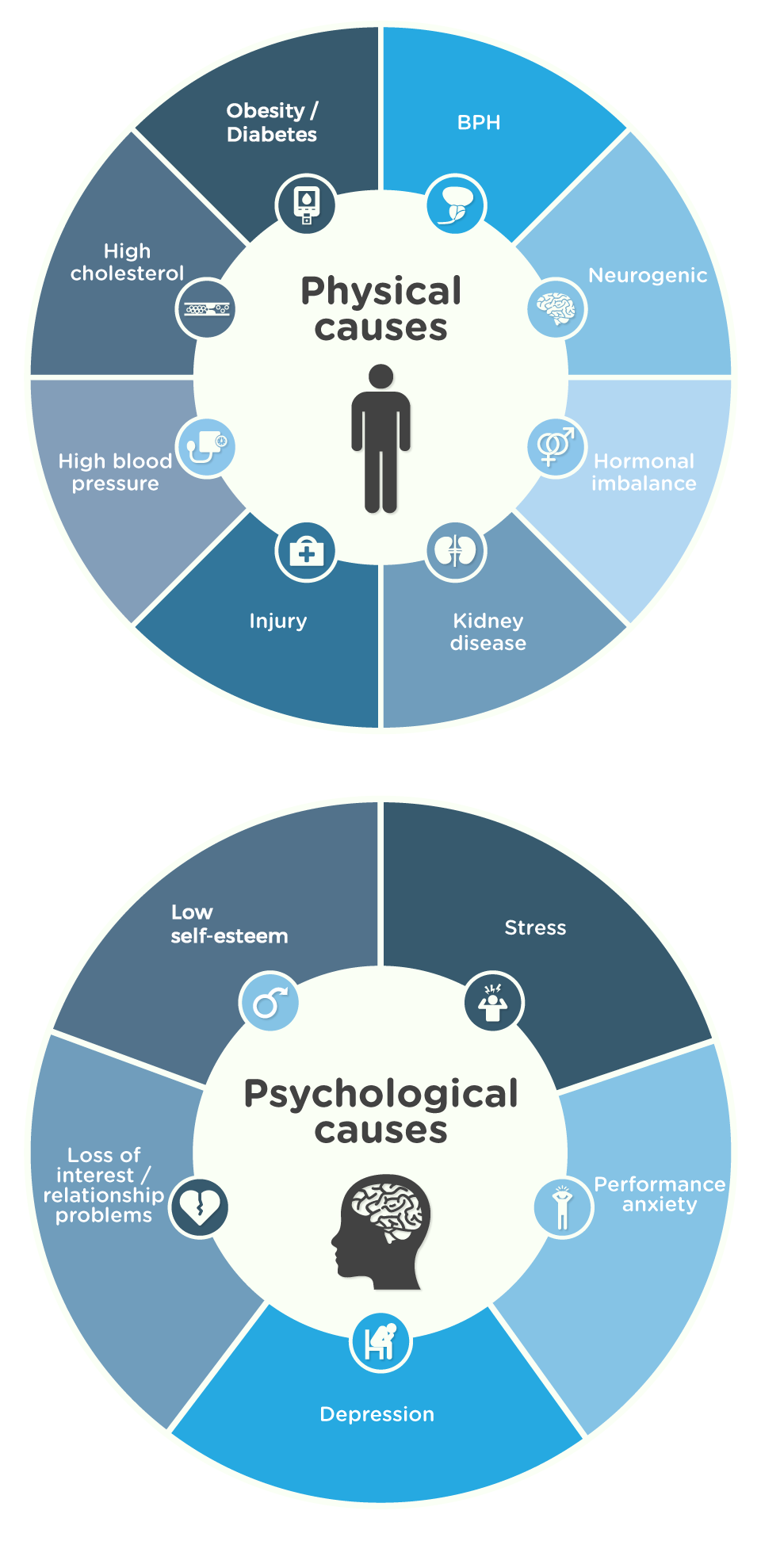Erectile Dysfunction Causes
The result of a complex interplay
Erectile function is the result of a complex interplay between physiological and psychological factors.
Among physiological causes of erectile dysfunction are factors affecting vascular, nervous and endocrine system. In particular, certain diseases and conditions can lead to erection problems, including:
- heart and blood vessel diseases;
- atherosclerosis;
- hypertension;
- hyperlipidemia;
- type 2 diabetes;
- chronic kidney disease;
- obesity;
- metabolic syndrome;
- hypogonadism;
- multiple sclerosis;
- Peyronie’s disease;
- bladder cancer surgery;
- pelvic surgery;
- prostate cancer treatment-related injuries;
- other injuries to prostate, bladder, male organ or spinal cord.
Also many common medications can lead to erection problems. Among others are antidepressants, tranquilizers, blood pressure medications, antiandrogens, appetite suppressants and ulcer medications.
Finally, psychological causes of erectile dysfunction includes:
- stress;
- anxiety or fear of sexual failure;
- depression;
- low self-esteem;
- loss of interest, relationship problems, or guilt about sexual performance or activity.


